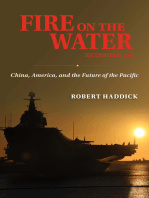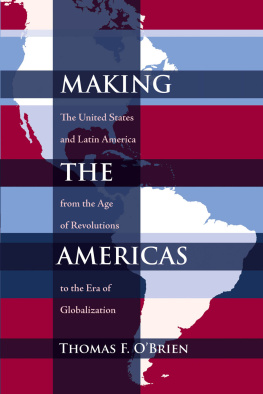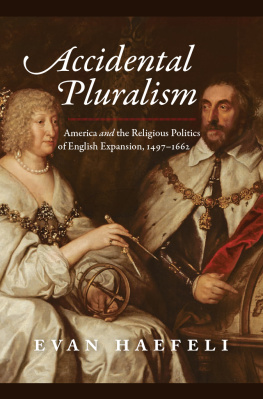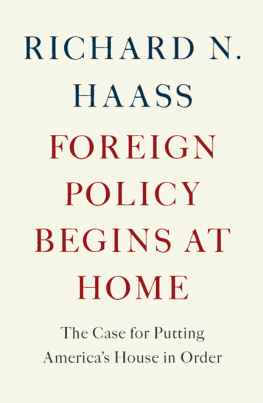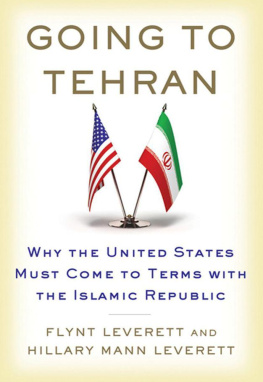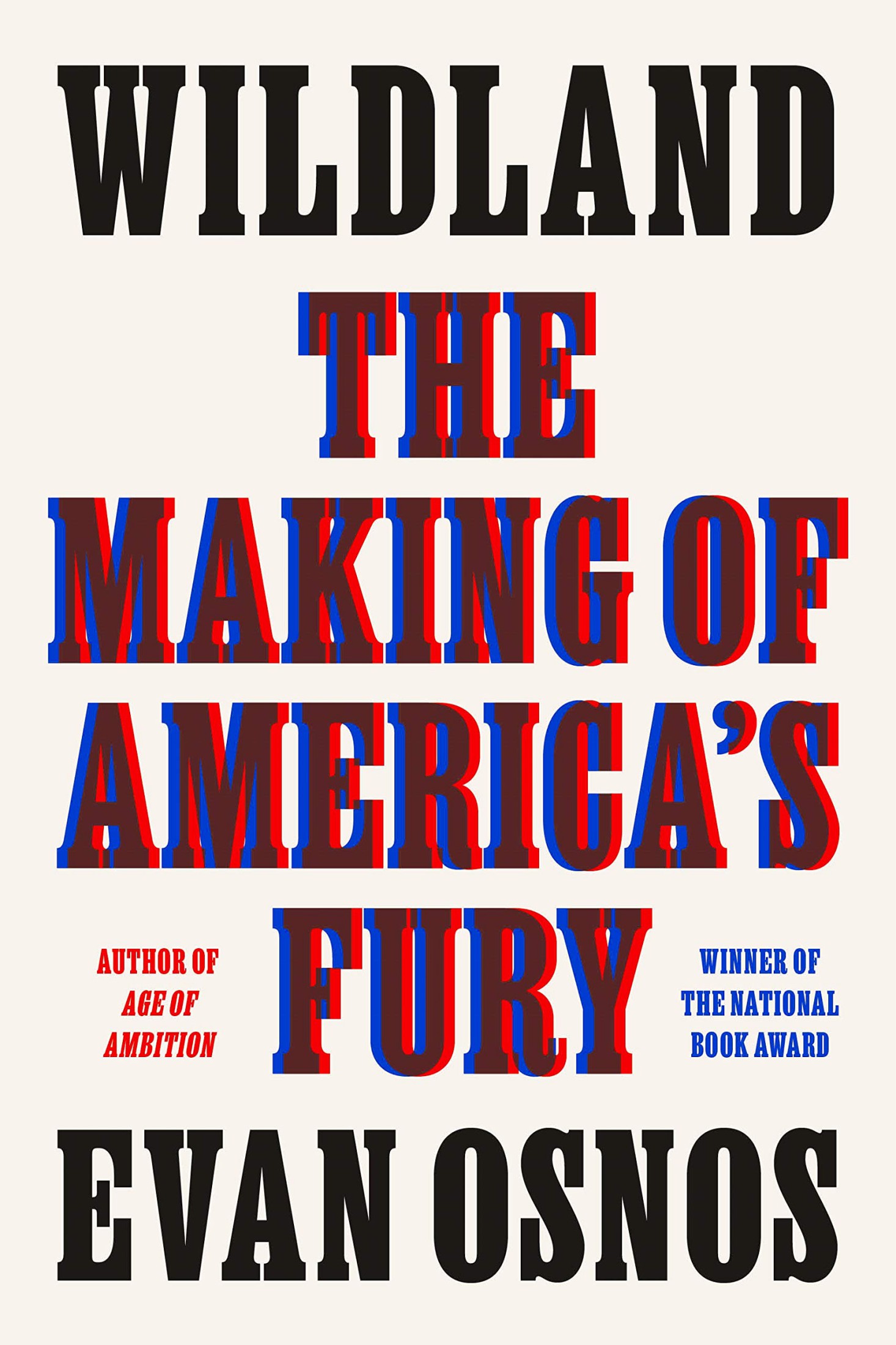
The author and publisher have provided this e-book to you for your personal use only. You may not make this e-book publicly available in any way. Copyright infringement is against the law. If you believe the copy of this e-book you are reading infringes on the authors copyright, please notify the publisher at: us.macmillanusa.com/piracy.
For Oliver and Rose
We see the world piece by piece, as the sun, the moon, the animal, the tree; but the whole, of which these are shining parts, is the soul.
RALPH WALDO EMERSON, The Over-Soul, 1841
What followed then was what invariably follows in the wake of every tortured consciousness. From what it dreads or hates, yet knows or feels to be unescapable, it takes refuge in that which may be hoped foror at least imagined.
THEODORE DREISER,An American Tragedy, 1925
POTTER VALLEY, CALIFORNIA
JULY 27, 2018
ON A HILLSIDE three hours north of San Francisco, a rancher waded through a meadow that rustled with golden grass. His name was Glenn Kile, and he lived in a sliver of the American West so blessed by nature that indigenous people called it Ba-lo Kaithe verdant valley. But on this day, the terrain was merciless. The temperature was 103 degrees, and it had been in the triple digits for days. All of the hottest summers in California history had arrived in the past twenty years, and the fields of the verdant valley had acquired the bone-dry smell and snap of straw.
A hundred feet from his house, the rancher stopped at the sight of a small hole in the gray-black soil at his feet. It was the mouth of an underground wasps nest. He lifted a steel hammer and pounded a rusty iron stake into the hole to seal it. But the clash of metal on metal spat out a spark, and the spark struck the field, and the field began to burn. At first, the rancher tried to kick dirt on the flames, but the heat of that wicked summer had rendered the soil as hard as stone. He tried to snuff out the fire with an old trampoline, but the fabric was consumed by the flames. He tried to coax water from a hose, but the rubber melted. And by the time Glenn Kile ran to his house and called the firefighters, history had slipped beyond his grasp. In half an hour, the inferno was twenty acres wide and racing toward a horizon of dried-out forests and scattered homes, a terrain that firefighters call wildlanda realm of nearly perfect tinder that is less a place than a condition.
The ranchers spark ignited the largest wildland fire in the history of California, a record that would soon be broken and then broken again. They named it the Mendocino Complex Fire, and it raged for a montha jet engine of wind and flame, consuming an area more than twice the size of New York City, a landmark in the annals of a warming world. When, at last, the inferno was extinguished, the state of California ruled that the rancher Glenn Kile was not liable for the catastrophe. He had lit the spark, but the true roots of the disaster ran deeper. The fire was the culmination of forces that had been gathering for decades.
That story reminded me of an old line about politics, from a book by the Chinese revolutionary Mao Zedong. A single spark, Mao wrote, can start a prairie fire. Mao knew little of America, but he knew brutal truths about politics. Living in Washington in the years of Donald Trump, I often thought about that image of a landscape primed to burn. Sometimes it felt like metaphor, and sometimes it felt like fact. But eventually I came to understand it as something elsea parable for a time in American history when the land and the people seemed to be mirroring the rage of the other. I wanted to understand how that time had come to be, and what it would leave behind.
Americans are among the worlds most restless people. In the 1950s, a fifth of the American population picked up and moved each year, in pursuit of a spouse or a job or a backyard in the suburbs. My own family followed that path. My father came to America in 1944 as a refugee; he had been born in India, to Jewish parents who were fleeing the Nazis invasion of Poland. My mother was born in Morocco to American diplomats from Chicago. During the Vietnam War, my parents met in Saigon, where my mother worked in the office of a nonprofit group and my father was a newspaper reporter. When they returned to get married, the occasion had an American eclecticism about ita Jew born in India, and a WASP born in Morocco, exchanging vows at a courthouse in Michigan.
I left the United States a little over a year after the terrorist attacks of September 11, 2001. The country was preparing to go to war in Iraq, and I reported from Baghdad, Cairo, and elsewhere in the Middle East. A few years later, I settled in Beijing, where I met Sarabeth Berman, from Massachusetts, who had gone abroad as a young producer of theater and dance. We married, and eventually prepared to go home. If we stayed abroad too long, Sarabeth said, we would find it hard to go back at all.
It was 2013, and we made plans to move to Washington. In our years abroad, we had witnessed the global response to Barack Obamas electioneuphoric in some places, wary in othersbut we knew less about what his victory meant to Americans. I had watched election returns on television, at an event in 2008, surrounded by curious Chinese spectators. The prospect of Americas first Black president conveyed an infectious sense of potential, particularly for people who recalled that the United States had once barred them under the Chinese Exclusion Act. When Obama won, Wang Chong, a Chinese newspaper reporter standing near me, let out a quiet whoop of celebration. Ethnic discrimination exists very deeply in Chinese minds, he said.
Coming home always holds the promise of a new way of seeing. In the 1940s, after covering the war in Europe, the author John Gunther returned to America. At times he felt like the man from Mars, he wrote in Inside U.S.A., published in 1947. In Gunthers case, some features of his home unnerved him; the segregation of the South out-ghettoes anything I ever saw in a European ghetto, even in Warsaw, he wrote. But other encounters thrilled him. On his travels across the country, he took to asking people, What do you believe in most? He was told: work, children, Thomas Jefferson, God, the golden rule, the Pythagorean theorem, a high tariff, a low tariff, better agricultural prices, happiness, good roads, and Santa Claus. But the most frequent response was, as he put it, the people, if you give them an even break.
Sarabeth and I landed at Dulles International Airport on July 7, 2013. At passport control, I picked up a brochure with the title Welcome to the United States. It was published by the Bureau of Customs and Border Protection, and it had a cover photo of the Washington Monument and cherry trees in bloom. The brochure began, We are glad that you decided to travel to the United States to visit, study, work, or stay.
For a few weeks, we stayed at my in-laws house on a quiet street in the Washington suburbs. It was a stark change from an alleyway in Beijing, where traveling merchants shouted offers to sharpen your kitchen knives or tell your fortune or buy your hair for a wig factory.
On Craigslist, we found a row house to rent in Washington, and we savored the minor luxuries we had missed in Chinapotable tap water, clean air, a dishwasher. In the citys most prosperous quarters, it felt like everyone was jogging or power-walking. Washingtons poorest streets, Wards 7 and 8, had levels of unemployment among the highest of any urban neighborhoods in America. They were just across the Anacostia River from Capitol Hill, but the distance was vast. In 2013, the average white family in Washington was eighty-one times richer than the average Black family. And the strains on life at the extremes were getting worse. By 2016, a child born in Washington, D.C., would have a life expectancy four years less than a child born in Beijingseventy-eight years, compared with eighty-two.


